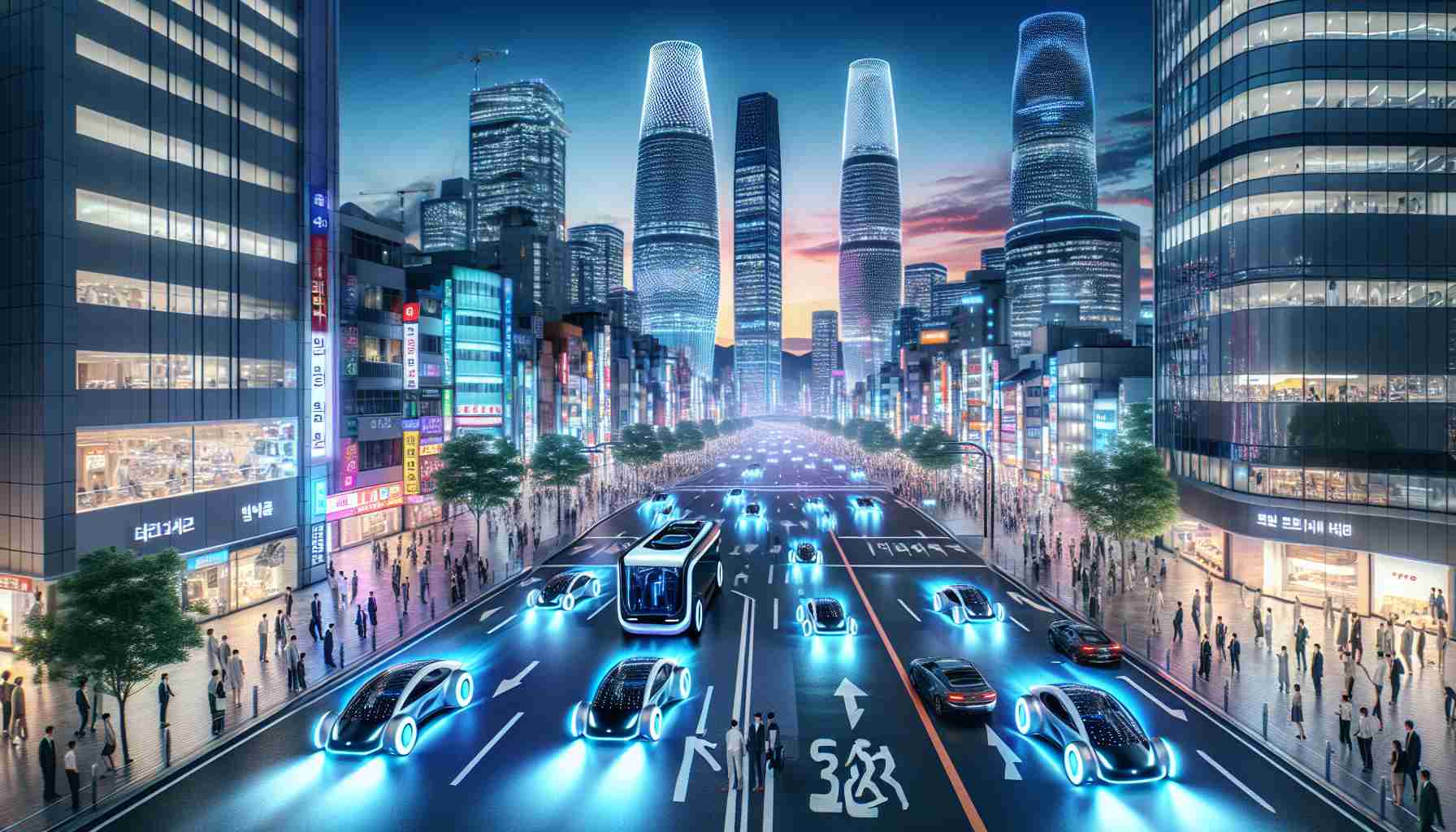In a remarkable development blending innovation with global rivalry, South Korean automotive giants Hyundai and Kia have taken a daring leap in hydrogen technology, setting the stage to redefine mobility across the globe. This ambitious venture doesn’t just reaffirm Korea’s leadership in sustainable automotive solutions—it also signals the start of a fierce competition with long-dominant Japanese firms.
Breaking New Ground with Hydrogen Power
Moving beyond earlier technological setbacks, Hyundai and Kia are focusing on creating an advanced hydrogen engine that prioritizes efficiency and range. By addressing the critical issue of limited refueling facilities, the collaborative effort aims to transform hydrogen vehicles into a mainstream option. Notably, the innovative designs will reduce reliance on rare materials, significantly cutting production costs and environmental impact.
Challenge to Japanese Supremacy
Historically, Japan, with pioneers like Toyota, has led the race in hydrogen technology, specifically through fuel-cell vehicles such as the Mirai. However, Seoul’s latest move might disrupt this balance. By developing a scalable and straightforward hydrogen combustion engine, Hyundai and Kia could potentially edge out Japanese firms, offering viable alternatives less dependent on massive investment in refueling infrastructure.
A Fresh Bid for Sustainability
While electric vehicles (EVs) currently dominate the green transport narrative, hydrogen combustion engines present a compelling alternative, sidestepping the environmental issues related to battery production. These engines excel in scenarios where EVs falter, such as long haul routes and heavyweight transport, heralding new possibilities for logistics and public commuting systems.
Shifting the Global Automotive Landscape
Beyond technological innovation, this Korean endeavor hints at a geopolitical shift. Should Hyundai and Kia’s designs prove successful, it could compel global competitors to reassess their strategies, potentially triggering worldwide enhancements in hydrogen infrastructure. As nations push towards eco-friendly targets, Korea’s advancements promise to reshape not only the market dynamics but also the broader narrative of clean transportation.
Could Hydrogen Engines Be the Future of Sustainable Transport?
Unveiling the Lesser-Known Impacts of Hydrogen Innovation on Society and Economy
The revelation of Hyundai and Kia’s move into hydrogen technology has stirred significant conversation around sustainable transportation. However, beyond this surface, the ripple effects of this shift could reshape societal norms, economic strategies, and international relations in far-reaching ways.
What Are Hydrogen Engines?
Hydrogen engines function by burning hydrogen as fuel, as opposed to the more mainstream hydrogen fuel cells, which use hydrogen to produce electricity. This fundamental difference in technology could mean faster adoption due to its use of existing combustion engine processes, familiar to manufacturers and mechanics alike. But how does this stand to change the everyday life of the average person or community?
Enhancing Energy Independence
An increasingly appealing fact is the potential for hydrogen engines to enhance energy independence. Communities and countries reliant on energy imports stand to gain significantly. By tapping into local renewable resources to produce hydrogen, regions can reduce dependence on oil and gas; thereby stabilizing energy prices and boosting local economies. Imagine rural areas, historically overlooked in energy debates, suddenly becoming self-sufficient centers of innovation.
The Controversy of Hydrogen vs. Electric
While EVs remain celebrated for their eco-friendliness, they are not without criticisms, particularly regarding the environmental impact of lithium and cobalt mining for batteries. Here, hydrogen engines present an intriguing alternative. Yet, the controversy arises around hydrogen production’s current reliance on fossil fuels and its energy-intensiveness. This brings about the question: can we innovate efficient ‘green hydrogen’ production methods that truly outpace carbon emissions?
Economic and Geopolitical Tugs of War
Competitions like that between Korean and Japanese auto giants underscore the broader geopolitical landscape, where dominance in new technologies translates to economic influence. For instance, as Korea pushes forward, countries may find themselves realigning trade relations to cater to or leverage these hydrogen advancements. This potentially disrupts pre-existing economic hierarchies and could redefine industrial strategies, similar to the impact of the OPEC oil embargo in the 1970s on oil-dependent economies.
Boosting Industrial and Job Markets
On the economic front, the development of hydrogen infrastructure and vehicles could lead to a surge in industrial jobs. From manufacturing hydrogen tanks to building new refueling stations, these demands create a workforce renaissance that both high-tech engineers and blue-collar workers could participate in. Training programs and educational shifts to incorporate hydrogen technology could soon follow, preparing a new generation for this impending change.
Infrastructure Overhaul: Yet Another Roadblock or Opportunity?
One can’t help but ask, can existing infrastructure sufficiently support this hydrogen transition? Indeed, creating a robust network of hydrogen refueling stations is no small feat, yet it poses an opportunity for industries ranging from construction to telecommunications. It represents a modern-day gold rush, possibly ushering in economic booms akin to those in the railway expansions of the past century.
Encouraging Global Action for a Greener Future
Ultimately, the push for hydrogen signifies a broader, global rally for sustainability. As each step is taken towards perfecting and implementing these technologies, the larger goal is clear: a cleaner future. In doing so, countries, industries, and individual consumers alike are urged to reconsider what transportation can look like for future generations, the incentives of which stretch beyond mere economic gain, encompassing environmental and health benefits.
For those eager to explore further, institutions like the International Energy Agency (IEA) and hydrogen advocacy groups offer resources and updates on emerging technologies and policies shaping this exciting arena. Can hydrogen engines power our future sustainably? Reality awaits through innovation and commitment toward greener choices.


